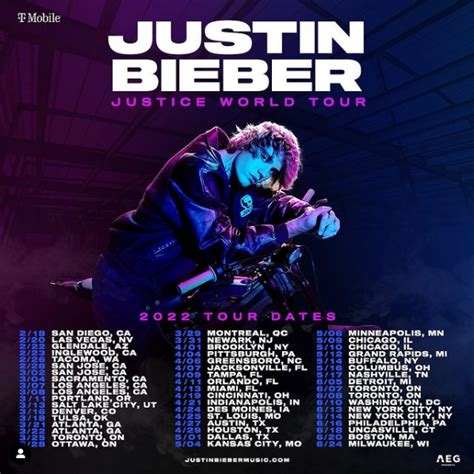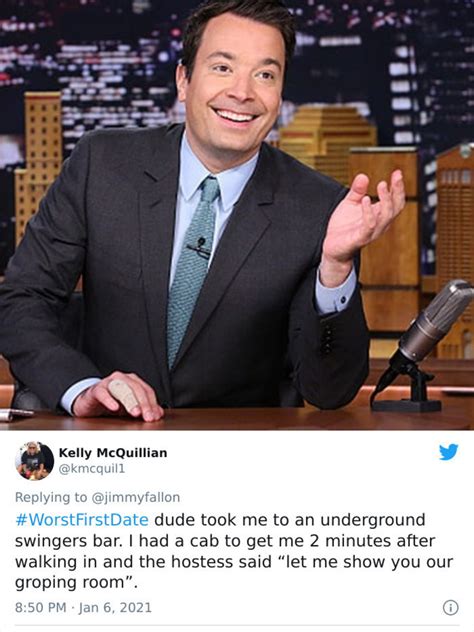
Justin Bieber’s decision to abruptly cancel the remaining dates of his “Justice World Tour” is estimated to have cost him around $90 million, raising questions about the future trajectory of his career and financial planning.
The pop superstar’s unexpected move, reportedly attributed to ongoing health challenges, has sent ripples through the entertainment industry, leaving fans disappointed and industry insiders speculating about the long-term implications for Bieber and his team. According to Yahoo Finance, which cited estimates derived from Billboard Boxscore data, the financial impact of the tour’s cancellation is substantial.
Bieber had initially postponed several tour dates in June 2022 due to Ramsay Hunt syndrome, a rare neurological disorder that caused facial paralysis. Although he attempted to resume touring, he ultimately announced the complete cancellation of the remaining shows in early 2023, prioritizing his health and well-being. This decision, while understandable given his medical condition, comes at a steep financial cost.
“It’s a significant amount of money,” said a financial analyst familiar with concert economics. “When you factor in ticket sales, merchandise revenue, venue fees, staffing costs, and the myriad of other expenses associated with a large-scale tour, the losses can quickly mount up.”
The $90 million figure represents the estimated revenue Bieber would have generated from the canceled shows. It does not include the costs already incurred in preparing for and executing the tour, which could further increase the overall financial impact. Furthermore, the cancellation may affect Bieber’s brand value and future earning potential, as it raises concerns about his ability to commit to long-term projects.
The entertainment industry is characterized by high financial risks and significant upfront investments. Artists often rely on touring to generate a substantial portion of their income, using the revenue to offset production costs, pay their teams, and fund future projects. A tour cancellation can disrupt this financial model, leaving artists and their teams in a precarious position.
While Bieber’s financial situation is undoubtedly secure due to his previous successes, the loss of $90 million represents a considerable setback. It also highlights the importance of risk management and insurance in the entertainment industry. Many artists and production companies purchase insurance policies to protect themselves against unforeseen circumstances, such as illness, injury, or natural disasters, that could force them to cancel or postpone events.
The cancellation of the “Justice World Tour” also raises questions about the impact on the hundreds of individuals employed by the tour, including musicians, dancers, technicians, stagehands, and security personnel. These individuals rely on touring for their livelihoods, and a sudden cancellation can leave them without income and job security.
In addition to the financial implications, the tour cancellation has also taken a toll on Bieber’s fans, who had eagerly anticipated seeing him perform live. Many fans had purchased tickets well in advance and made travel arrangements to attend the shows. The cancellation has left them disappointed and frustrated, with some expressing concerns about the refund process.
Bieber’s team has assured fans that they will receive refunds for their tickets. However, the refund process can be lengthy and complicated, especially for those who purchased tickets through third-party vendors.
The situation surrounding Bieber’s tour cancellation serves as a reminder of the challenges and uncertainties inherent in the entertainment industry. While artists like Bieber enjoy immense success and fame, they are also vulnerable to unforeseen events that can disrupt their careers and financial stability.
“Health always comes first,” said a representative for Bieber. “Justin needs to prioritize his well-being at this time. He appreciates the support of his fans and regrets that he is unable to perform for them.”
Despite the setbacks, Bieber remains one of the most popular and influential artists in the world. He has a dedicated fan base and a proven track record of success. It is likely that he will eventually return to touring and continue to release new music. However, the cancellation of the “Justice World Tour” will undoubtedly have a lasting impact on his career and financial planning. The pop star now faces the challenge of rebuilding momentum and regaining the trust of his fans while managing his health and financial future. The situation also highlights the fragility of the entertainment industry and the importance of contingency planning in the face of unforeseen circumstances.
The long-term effects of this cancellation remain to be seen, but one thing is certain: Justin Bieber’s journey through the music industry continues to be marked by both extraordinary success and unexpected challenges.
The cancellation’s impact extends beyond Bieber himself. Venues that were scheduled to host the concerts now face financial losses, and local economies that benefit from the influx of concertgoers will also feel the pinch. The ripple effect underscores the significant role that live music plays in the broader economy.
Furthermore, the “Justice World Tour” cancellation serves as a case study for other artists and their management teams. It highlights the importance of having robust contingency plans in place to mitigate the financial risks associated with touring. Insurance policies, flexible contracts, and alternative revenue streams can all help to protect artists and their teams from the impact of unforeseen events.
As Bieber focuses on his health and well-being, the entertainment industry will be watching closely to see how he navigates this challenging period. His ability to overcome this setback and return to touring will depend on his physical recovery, his ability to reconnect with his fans, and his willingness to adapt to the changing landscape of the music industry. The cancellation serves as a stark reminder that even the most successful artists are not immune to the challenges and uncertainties of the entertainment world. The road ahead may be uncertain, but Justin Bieber’s resilience and determination will undoubtedly play a crucial role in shaping his future.
The situation also prompts a broader discussion about the pressures faced by artists in the modern music industry. The relentless demands of touring, recording, and maintaining a public image can take a toll on their physical and mental health. It is essential for artists to prioritize their well-being and seek support when needed. The industry as a whole needs to create a more sustainable environment that supports the health and longevity of its artists. The focus should be on fostering a culture of self-care and providing resources to help artists cope with the pressures of fame and success. This includes access to mental health services, financial planning advice, and support networks that can help them navigate the challenges of the industry.
Justin Bieber’s experience serves as a cautionary tale for other young artists who are entering the music industry. It is important to have a solid support system in place, including family, friends, and trusted advisors, to help them navigate the pressures of fame and success. They should also prioritize their education and develop skills that will allow them to pursue other career options if necessary. The music industry can be unpredictable, and it is essential to have a backup plan in place. Young artists should also be aware of the financial risks associated with touring and recording and should seek professional advice on how to manage their money. It is also crucial to maintain a healthy lifestyle, including getting enough sleep, eating a balanced diet, and exercising regularly. This will help them cope with the physical and mental demands of the industry.
Moreover, the tour cancellation highlights the evolving dynamics between artists and their fans in the digital age. Social media has created new avenues for artists to connect with their fans, but it has also increased the pressure to maintain a constant presence and respond to every comment and criticism. This can be overwhelming and can contribute to mental health issues. Artists need to learn how to manage their online presence in a healthy way and to set boundaries to protect their privacy and well-being. They should also be aware of the potential for cyberbullying and should take steps to protect themselves from online harassment. The industry needs to provide artists with resources and support to help them navigate the challenges of social media and to maintain a healthy relationship with their fans.
The case of Justin Bieber’s tour cancellation also invites a discussion on the role of insurance in the entertainment industry. The substantial financial loss incurred underscores the importance of comprehensive insurance coverage for artists and event organizers. Tour cancellation insurance can protect against losses resulting from unforeseen events such as illness, injury, or force majeure. These policies typically cover expenses such as ticket refunds, venue rentals, and production costs. However, obtaining adequate insurance coverage can be complex and expensive, particularly for large-scale events. Insurance companies assess various risk factors, including the artist’s health history, the location of the venues, and the potential for political instability or natural disasters. Artists and their management teams need to carefully evaluate their insurance needs and work with experienced brokers to secure the appropriate coverage. The cost of insurance is a necessary expense that can provide significant financial protection in the event of a tour cancellation.
In conclusion, Justin Bieber’s “Justice World Tour” cancellation and the associated $90 million loss serve as a multifaceted case study with significant implications for the entertainment industry. It underscores the financial risks inherent in large-scale events, the importance of artists prioritizing their health and well-being, and the need for robust risk management strategies, including comprehensive insurance coverage. The situation also highlights the evolving dynamics between artists and their fans in the digital age and the pressures faced by young artists entering the music industry. As Justin Bieber focuses on his recovery, the industry will be watching closely to see how he navigates this challenging period and what lessons can be learned from his experience. The long-term effects of the cancellation remain to be seen, but it is clear that it will have a lasting impact on his career and financial planning. The situation also prompts a broader discussion about the need for a more sustainable and supportive environment for artists in the modern music industry.
Frequently Asked Questions (FAQ)
Q1: What is the estimated financial loss Justin Bieber faced due to the “Justice World Tour” cancellation?
A1: According to Yahoo Finance, citing Billboard Boxscore data, the estimated financial loss is around $90 million. This figure represents the projected revenue from the canceled shows.
Q2: Why did Justin Bieber cancel the remaining dates of his “Justice World Tour”?
A2: Bieber canceled the tour primarily due to ongoing health challenges related to Ramsay Hunt syndrome, which caused facial paralysis. He initially postponed several dates in June 2022 and ultimately decided to cancel the remaining shows to prioritize his health and well-being.
Q3: What is Ramsay Hunt syndrome, and how did it affect Justin Bieber?
A3: Ramsay Hunt syndrome is a rare neurological disorder that occurs when the varicella-zoster virus (the same virus that causes chickenpox and shingles) infects a nerve in the head near the ear. It can cause facial paralysis, hearing loss, and a painful rash. In Bieber’s case, it caused significant facial paralysis, impacting his ability to perform.
Q4: What happens to fans who had already purchased tickets for the canceled “Justice World Tour” dates?
A4: Bieber’s team has assured fans that they will receive refunds for their tickets. However, the refund process can vary depending on where the tickets were purchased, with some fans experiencing delays, especially if tickets were bought through third-party vendors.
Q5: Besides the financial loss for Justin Bieber, what are some other impacts of the tour cancellation?
A5: The cancellation has several other impacts:
- Impact on the Tour Staff: Many individuals employed by the tour, including musicians, dancers, technicians, and stagehands, faced job insecurity and loss of income.
- Economic Impact on Venues and Local Economies: Venues that were scheduled to host the concerts faced financial losses, and local economies that benefit from the influx of concertgoers were also affected.
- Disappointment to Fans: Fans who had eagerly anticipated seeing Bieber perform live were left disappointed and frustrated.
- Industry-Wide Implications: The cancellation serves as a case study for other artists and their management teams, highlighting the importance of risk management and contingency planning in the entertainment industry.
- Insurance Impact: The case invites discussion on the role of insurance in the entertainment industry.
- Pressure on Artists: It prompts a broader discussion about the pressures faced by artists in the modern music industry and the importance of prioritizing their health and well-being.
Q6: How might the tour cancellation affect Justin Bieber’s future career and financial planning?
A6: While Bieber’s financial situation is secure due to his past successes, the $90 million loss represents a considerable setback. The cancellation may affect his brand value and future earning potential, raising concerns about his ability to commit to long-term projects. It also highlights the importance of risk management and insurance in the entertainment industry.
Q7: What measures can artists take to mitigate the financial risks associated with touring?
A7: Artists can mitigate financial risks by:
- Purchasing comprehensive insurance policies: This can protect against losses from unforeseen events like illness or injury.
- Having flexible contracts: These allow for adjustments in case of unforeseen circumstances.
- Diversifying revenue streams: This reduces reliance on touring income.
- Implementing robust contingency plans: These outline alternative strategies in case of tour disruptions.
- Prioritizing the health of the artist: Ensuring the physical and mental well-being of the artist is paramount, reducing the likelihood of cancellations due to health issues.
Q8: What can be done to support artists’ health and well-being in the demanding music industry?
A8: To support artists’ health and well-being, the industry can:
- Foster a culture of self-care: Encouraging artists to prioritize their physical and mental health.
- Provide access to mental health services: Offering counseling, therapy, and support groups.
- Offer financial planning advice: Helping artists manage their finances and plan for the future.
- Establish support networks: Connecting artists with peers and mentors who can provide guidance and support.
- Reduce pressure on social media presence: Encourage artists to manage their online presence in a healthy way and set boundaries to protect their privacy and well-being.
Q9: What lessons can young artists learn from Justin Bieber’s experience?
A9: Young artists can learn to:
- Build a strong support system: Surround themselves with family, friends, and trusted advisors.
- Prioritize education and skill development: Have a backup plan in case the music industry becomes unstable.
- Seek professional financial advice: Learn how to manage money effectively.
- Maintain a healthy lifestyle: Get enough sleep, eat well, and exercise regularly.
- Prioritize mental health: Take measures to ensure that their mental health is taken care of, including professional medical care.
Q10: What broader implications does the tour cancellation have for the entertainment industry?
A10: The cancellation highlights:
- The fragility of the entertainment industry: Unforeseen events can disrupt careers and financial stability.
- The importance of risk management and insurance: Protecting against financial losses due to unforeseen circumstances.
- The need for a sustainable environment for artists: Supporting their health and longevity.
- The evolving relationship between artists and fans: Navigating social media and maintaining a healthy online presence.
- The significance of comprehensive planning: Artists and their teams must ensure that contingencies are considered for various potential problems that can come up during the tour or concerts.









